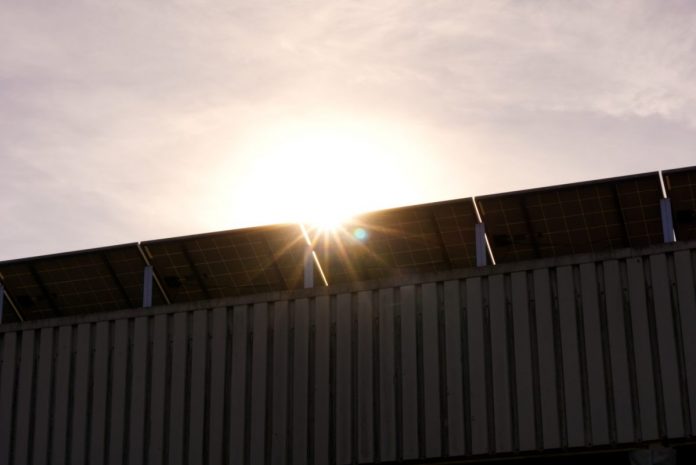Researchers from Pakistan’s Mirpur University of Science and Technology have developed a technique for solar module cooling based on the use of external heat sink fins.
The scientists have experimentally evaluated the performance of the proposed passive cooling technique in two different configurations: one using rectangular fins applied to the rear surface of two 50 W monocrystalline PV modules with size of 0.76 × 0.55 × 0.04 m, and one based on circular fins applied to another panel of the same kind.
The PV modules were installed with a tilted angle of 33 degrees and oriented to the south. The output parameters of the panels were recorded using the current-voltage (IV) PROVA-200A solar module analyzer. The solar radiation was measured through a pyranometer and solar cell temperature was monitored with thermocouples linked to the rear side.
Both fins were separately integrated on two aluminum sheets with the same thickness, which were in turn attached to the rear sides of the panels. The two modules with the circular fins had each 204 fins with a diameter of 0.04 meters and a length of 0.04 meters, while the modules with the rectangular fins had 14 fins with a thickness of 0.007 meters, a height of 0.025 meters, and a length of 0.72 meters.
The maximum heat in the panels with the rectangular fins dissipated at a 155% higher rate than that of the reference module and at a 129% higher rate than the PV modules with circular fins. The group said that the cooling rate of the modules’ back surface was enhanced with both configurations.
“The performance of the modified modules has been compared with a reference PV module, placed along with these at the same conditions,” they explained. The configuration with rectangular fins showed the best results in terms of heat rejection. “This could be attributed to the larger cross-sectional and surface area of rectangular fins,” they added.
At a peak solar radiation of 960 W per square meter, the temperature of the reference module was 64 C, while that of the module with rectangular fins was 6 C lower. The cooling performance of the circular solution, by contrast, results in a negligible temperature decrease.
Despite its poor performance, the second solution can still be improved by enhancing the cross-sectional area and surface area of the panels, while also reducing the spacing between them. In this way, the heat transfer from the circular fin-based PV modules could be increased.
The researchers presented their findings in Experimental performance analysis of two different passive cooling techniques for solar photovoltaic installations, recently published in the Journal of Thermal Analysis and Calorimetry.






